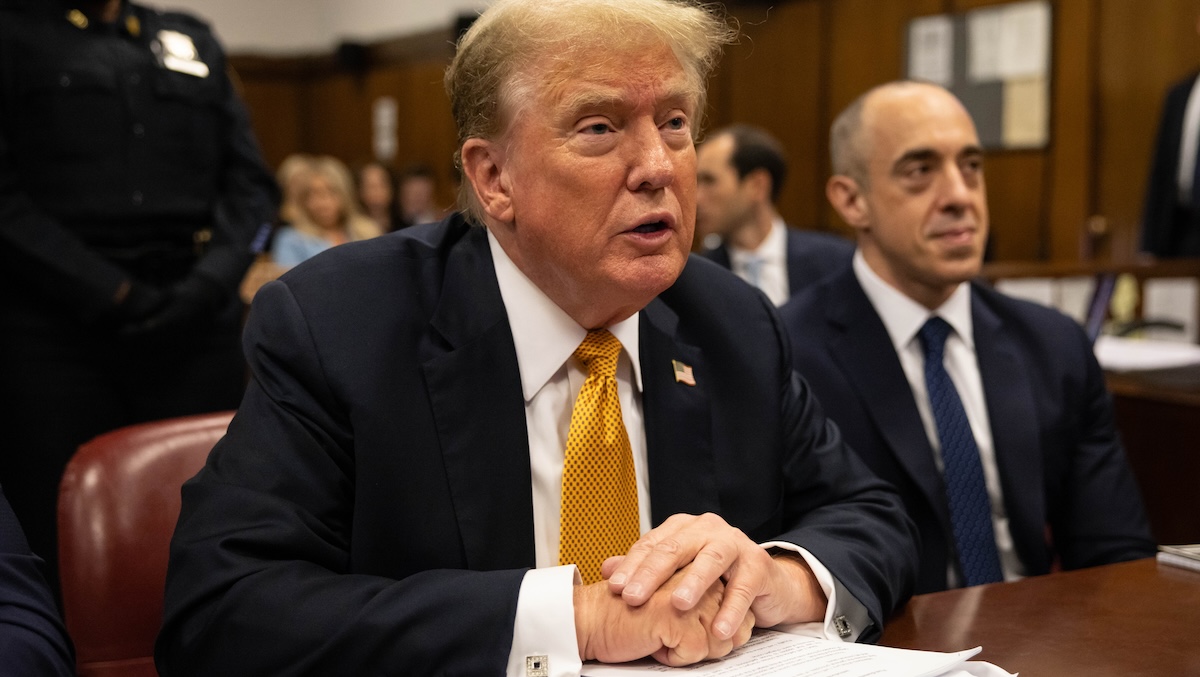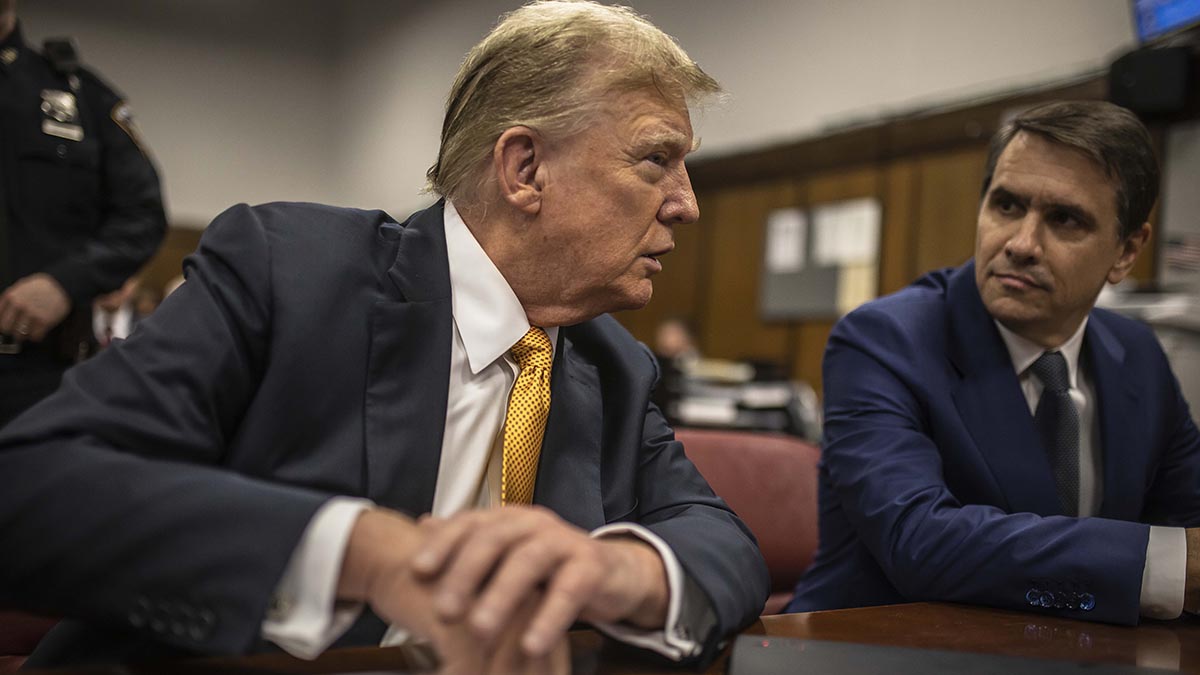
Former President Donald Trump could soon join the millions of Americans whose voting rights depend on their criminal record, if a Manhattan jury convicts him of felony charges in a hush money case.
But experts say Trump is unlikely to be disenfranchised by a felony conviction in the New York case, noting that it will come down to whether the presumptive Republican presidential nominee goes to prison as part of his sentence.
Forty-eight states prohibit some or all Americans with felony convictions on their record from voting, according to the Sentencing Project, and an estimated 4.4 million Americans — approximately 2% of the voting-age population — could not vote in the 2022 elections due to those laws. The group estimates that more than 1 million of those disenfranchised Americans live in Florida, where Trump established his official residency in 2019.
Florida defers to other state laws when it comes to disenfranchising voters who are tried and convicted elsewhere. That means that Florida voters like Trump would lose their voting rights only if the state where they are convicted would disenfranchise them for the crime, too. And if the state of their conviction would restore their voting rights, so would Florida, said Blair Bowie, an attorney at the Campaign Legal Center who advocates for the end of felony disenfranchisement.
New York prohibits those serving time behind bars for felony convictions from voting, and voting rights are restored as soon as the individual leaves prison. Those convicted of felonies who do not go to prison never lose their voting rights.
In the New York case, “the only way he wouldn’t be able to vote is if he is in prison on Election Day,” Bowie said.
The 12-person jury in Trump's Manhattan trial began deliberating prosecutors’ case on Wednesday, and could render a verdict at any point. Trump is charged with 34 counts of falsifying business records relating to a hush money payment his attorney Michael Cohen made to adult film star Stormy Daniels in the closing days of the 2016 election.
Trump could face up to four years in prison if he's convicted. But experts say prison time for a first-time, nonviolent offender is less likely. And even if he were ordered to serve time, the inevitable appeals process would likely delay a sentence well past the 2024 election, allowing Trump to cast a ballot for himself in his third presidential bid.
In the event of Trump losing his voting rights in Florida, there would also be avenues for him to regain them.
Get a weekly recap of the latest San Francisco Bay Area housing news. >Sign up for NBC Bay Area’s Housing Deconstructed newsletter.
Trump could seek clemency to restore his voting rights in Florida, where Gov. Ron DeSantis — his former rival in the 2024 GOP presidential primary — oversees a process that allows people with felony convictions to regain their voting rights.
Who's who in the Trump hush money trial
Key players in the historic first criminal trial of a former U.S. president.
Source: AP
Bowie said DeSantis typically requires those with felony convictions to complete the terms of their sentencing before applying, but has the power to change the rules.
Conviction in federal court — where Trump faces charges in Washington, D.C., for attempting to overturn the results of the 2020 election and in Florida for his handling of classified documents — could pose a greater threat to the former president’s voting rights in Florida, she added, as Trump would need to seek clemency in Florida or a presidential pardon to vote again in the state in that scenario. But it's unclear if those cases will go to trial before Election Day.
Bob Libal, an organizer at the Sentencing Project, said the former president's experience is not unique.
"The confusion around President Trump's eligibility to vote is representative of a confusion that a lot of people have and I think that that confusion dissuades people from voting," he said.
“It can be quite complicated. We’re talking about Trump, who’s a person who has access to lots of lawyers, and even here you can tell it’s quite complicated,” Bowie added. “For the average person who doesn’t have access to attorneys, it can be almost impossible.”
This story first appeared on NBCNews.com. More from NBC News:



